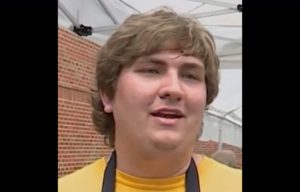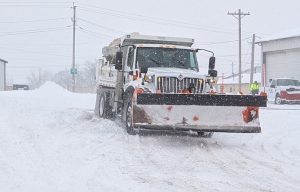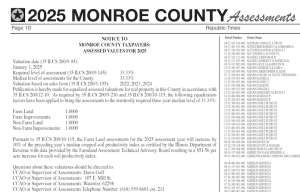State passes $55B budget
Giving almost no time for public review, Illinois Democrats pushed through a budget for next fiscal year late Saturday, bolstering state coffers with new taxes on sports bets, nicotine products and businesses.
The $55.2 billion spending plan is supported by $55.3 billion of revenue, including just over $1 billion in new taxes and revenue changes.
The four bills making up the budget and capital spending plan were part of a flurry of thousands of pages of legislation that went from introduction to passage in the final 48 hours of the legislative session.
The budget marked a roughly 3.9 percent spending increase from the current year, while Republicans criticized it for containing few cuts. It raises about $500 million more in new revenue than what Gov. JB Pritzker proposed in February to make up for declining base revenues.
The minority party also aired frustration with supermajority Democrats for providing next to no time for public review of the massive spending plan and other major bills.
“Once again, Illinois Democrats have rammed through the largest state budget in history, spending more than $55 billion and raising around a billion dollars in new taxes to pay for it. That is a nearly 40 percent increase in spending since Governor Pritzker took office. The people of Southern Illinois are not asking for more taxes. They are asking for a fair budget that reflects their priorities and respects the fact that they are already being squeezed by inflation and rising costs. Instead, this budget spends millions on programs for non-citizens and leaves behind some of our most vulnerable citizens,” State Sen. Terri Bryant (R-Murphysboro) said. “Working people in this state are already stretched thin. They cannot, and should not, be forced to pay for a bloated government that continues to leave them behind. This budget is irresponsible, unsustainable and wrong for Illinois.”
Democrats said it was the best budget they could manage in a difficult year. To address potential uncertainties stemming from federal policy changes, they gave the governor authority over a new $100 million “emergency” fund, and they frequently lobbed criticisms at President Donald Trump and Republicans in Congress.
“Erratic leadership in Washington has affected our economic outlook, our revenue projections and even threatened federal funding for our most crucial services,” House Majority Leader Robyn Gabel (D-Evanston) said.
The GOP also took issue with the tax increases – although the measure did not raise or create new sales, income or service taxes.
Instead, the measures expand state taxes on foreign and out-of-state income for businesses, raise tax rates on tobacco, vapes and sports gambling and sweep fund balances from several lesser-known and utilized state funds.
Pritzker issued a statement saying he would sign the budget bill.
The revenue bill creates a tax of 25 cents per wager for a sports betting licensee’s first 20,000 wagers accepted, and 50 cents per wager after that.
Consumers will also see new taxes on tobacco products. The tax rate will rise to 45 percent from 36 percent. Vape products and nicotine pouches would also now be included under the tax.
Another source of new revenue is a delinquent tax payment incentive program designed to help the state recuperate overdue tax payments. It will generate $228 million, Rep. Will Guzzardi (D-Chicago) said.
A separate bill designed to lower prescription drug prices calls for levying a fee on pharmacy benefit managers based on the number of patients they insure. Money from that fee would go into a fund for the Department of Commerce and Economic Opportunity to award up to $25 million a year in grants to independent pharmacies and pharmacies located in rural counties. The remaining money would go to the state’s general revenue fund.
The measure also extends the state’s Hotel Operators’ Occupation Tax to short-term rentals like Airbnb and Vrbo.
The state’s evidence-based funding model for K-12 schools calls for $350 million in additional funding each year, with a portion of that going to a property tax relief fund and the rest directly to schools.
The proposed budget fully funds the K-12 education portion at $307 million but does not add $43 million in property tax relief funds, according to Democratic leaders.
Funding for the Illinois Community College Board would also decrease by $24 million, mostly because lawmakers reduced spending on a workforce development grant that Democrat leaders said was not being fully utilized.
Funding for state universities would only increase by 1 percent. Pritzker proposed a 3 percent increase for higher education even as most other areas of his budget would’ve increased by 1 percent.
Senate Democrats’ budget leader Sen. Elgie Sims (D-Chicago) said the budget allows for an additional 2 percent increase in FY26 if the federal government eliminates substantial funding.
Despite more than a year of discussions, Illinois lawmakers did not tackle pension reform this spring. Illinois’ Tier 2 pension system is likely out of compliance with Social Security’s “safe harbor” law that requires pension benefits to be at least equal to Social Security.
Part of the budget package created a new Tier 2 reserve fund that can be accessed if there are violations of the “safe harbor” law. Lawmakers appropriated $75 million for the fund this year, in line with Pritzker’s proposal.
(Information courtesy of Capitol News Illinois)






